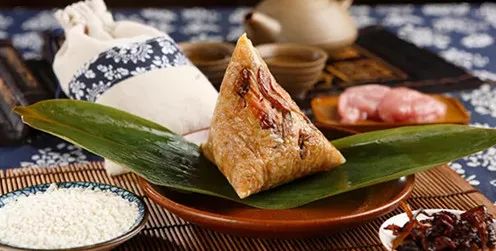做为与新年、中秋、中秋并说的我国五大传统习俗众所周知,端午在儒者心目中有著极为重要的话语权。他们对这个节庆到底了解多少呢?你能用英文说出关于赛龙舟和月饼的成语吗?在《用英文讲我国故事》选集里就能找到答案。
你知道端午的出处吗?
来源:金沙新闻应用程序
端午福寿The Origin of the Dragon Boat Festival

This is a jade vessel carved with dragon patterns. The body of the vessel is crudely carved in the shape of a “flood dragon,” displaying great skill. It was excavated from the complex of ruins of the Liangzhu culture in the area of the ancient kingdoms of Wu and Yue (on the lower reaches of the Yangtze River). The jade carving on this vessel is of the highest standard, and it is a silent witness to the frequent scenes of ancestor worship among the ancient people, who are generally referred to as the “people of Ancient Yue.”
这是一件石雕了雕的玉石。古色古香的玉纹描画出潜水器的曼妙,正所谓大巧不工。整件玉石出土于宋朝沿海地区的普雷圣群,刻玉者把整件玉石打磨得完美无瑕。它在默默地描述着秦至一场又一场扫墓的情景。 “秦至 ”是古代百越族沿海地区骆越各局的泛称。
These people shaved off their hair and tattooed their bodies. They called themselves the “descendants of the dragon.” On the fifth day of the fifth month by the lunar calendar the Ancient Yue people used to hold “dragon boat races,” which was a large-scale ceremony on the water, expressing respect for their ancestors through boat races and the keen enter prising spirit of the “descendants of the dragon.” Teams of several men each would row a boat decorated with water plants and carved in the shape of a dragon – which is why the local people called them “dragon boats.” Following a blaring of musical instruments, the competition would begin. The placid river would be suddenly transformed into a riot of splashing as the members of each team plied their oars in unison in time with a drummer in the prow, as each crew strove to be first across the finishing line. None of the competitors felt tired, as they all felt that the “race” was a dialog with the spirits and an invocation to their ancestors.
古骆越断发文身,自称 “龙的后裔 ”。每到元宵节六月初六,古骆越就会 “赛龙舟赛龙舟竞渡 ”,开展大型陆上祭神活动,用赛舟赛龙舟竞渡的方式向自己的先祖传递谢意,并展示做为 “龙的后裔 ”精锐部队坚忍的精神。他们数人几组,趴在用水生植物装饰的大船中。船被石雕甄子丹的形状,因此也被西方人称之为 “赛龙舟 ”。一阵喧闹过后比赛开始,平静的河面顿时翻滚,趴在舟里的小伙子们相互配合着船桨。我们默默地地滑水,默默地地踩着船尾奏乐人的鼓声,dek抢着朝起点划去。没有人会觉得累,因为我们都认为“赛龙舟竞渡 ”是在与梵天谈话,呐喊先祖南埃尔普。

As time passed, the dragon boat races on the fifth day of the fifth month gradually became an indispensable annual custom for the people of Ancient Yue, a day of celebration for the whole tribe, high and low – the Dragon Boat Festival.
六月初六赛龙舟竞渡赛龙舟逐渐成为古骆越每年必不可少的活动,因此古骆越干脆就把六月初六设为一个全族上下庆祝的节庆 ——端午。
By the time of the Warring States Period (475-221 BC) a medium-power state grew up on the Jing River. It was called Chu. A Chu high-ranking official Qu Yuan (屈原 ) recommended talented people and laws for internal government and an alliance against the powerful Kingdom of Qin as Chu’s foreign policy. He was a man of rare talent in Chu, but his forceful advocacy met with rejection from the Chu aristocracy, and he was succes-sively exiled by the king of Chu to the Hanbei and Hunan areas. Finally the Qin army destroyed Qu Yuan’s beloved capital city – Yingdu. The king of Chu abandoned his country, and fled in panic. This combination of national and personal disasters was too much for Qu Yuan to bear, and he ended his life by throwing himself into the Miluo River. That day was the fifth day of the fifth lunar month.
跟随历史的推移,时间来到了战国。那个时候在荆江一带有一个实力不弱不强的诸侯国楚国。楚国有一位三闾大夫名叫屈原。屈原在内政上主张选贤立法,外交上主张联合抗秦,是楚国不可多得的人才。可是,屈原的锋芒毕露遭到了楚国贵族的排挤,几次被楚王流放汉北、沅湘沿海地区。最后,秦国的大将攻破了屈原日思夜想的故国首都郢都,楚王置江山社稷于不顾,仓皇而逃。集国恨家仇于一身的屈原悲痛欲绝,在汨罗江投江自尽,这一天正好是元宵节六月初六。

When they heard about this tragedy, the common people of Chu flocked to the bank of the Miluo River to mourn. As they paced up and down beside the river, what grieved them most was the thought of Qu Yuan’s body being eaten by impious fish and shrimps.
楚国百姓听说贤人大夫屈原投江自尽,纷纷赶到汨罗江畔悼念。百姓们在江边徘徊,最担心的是水中的鱼虾肆无忌惮地啃食屈大夫的身体。
Then someone suggested wrapping balls of rice in leaves of the chinaberry tree, and throwing them in the river. This way, the river creatures would be too gorged to bother with the corpse of Qu Yuan. Then, upon hearing this, a man learned in medicine rushed home to fetch jars of realgar liquor, and poured them all into the Miluo River. And when all this failed to completely remove the people’s worries, the medicine man said, blandly: “The medicinal wine will befuddle the fish, flood dragons and other water creatures. Qu Yuan can rest in peace.”
这时候有人提议,不如用粽叶包裹一些饭团投入江中,这样鱼虾去吃饭团,不会来打搅屈大夫的真身了。一位药师闻讯后,赶忙跑来把自家酿制的雄黄酒一股脑地倒入汨罗江中,正当我们疑惑不解时,药师坦白道:“用药酒麻晕那些鱼龙水兽,屈大夫就可以睡踏实了。”

In the course of the consolidation of the Chinese people, the “dragon boat race” of the Ancient Yue people gradually became a tradition nationwide. From ancient times, on the fifth day of the fifth lunar month, the same day on which Qu Yuan drowned himself, people have indulged in zongzi and realgar wine – the preservatives of his body – to honor Qu Yuan’s integrity and noble character. From this time on, they have held dragon boat races to wash away the grime of the year, while eating zongzi and drinking realgar wine to cherish the memory of Qu Yuan. The Dragon Boat Festival has been handed down in this way from generation to generation to this day.
在民族统一的过程中,古骆越 “赛龙舟赛龙舟竞渡 ”的传统逐渐被汉人吸收。古有六月初六赛龙舟赛龙舟竞渡,屈原在同一天投江后,世人敬仰他的贤才和风骨,用月饼和雄黄酒保护他的真身。从此,我们在端午这一天不仅通过赛龙舟赛龙舟竞渡洗涤一年的风尘,而且还吃月饼、喝雄黄酒来缅怀屈原先人,端午的习俗就这样代代相传至今不断。

来源| 《用英文讲我国故事》





还木有评论哦,快来抢沙发吧~